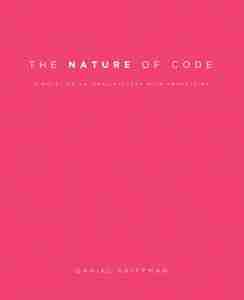Faster previews. Personalized experience.
Get started with a FREE account.

by Ron Bekkerman
492 Pages
·
2012
·
1,739 Downloads
·
New!
This book presents an integrated collection of representative approaches for scaling up machine learning and data mining methods on parallel and distributed computing platforms. Demand for parallelizing learning algorithms is highly task-specific: in some settings it is driven by the enormous dataset sizes, in others by model complexity or by real-time performance requirements. Making task-appropriate algorithm and platform choices for large-scale machine learning requires understanding the benefits, trade-offs, and constraints of the available options. Solutions presented in the book cover a range of parallelization platforms from FPGAs and GPUs to multi-core systems and commodity clusters, concurrent programming frameworks including CUDA, MPI, MapReduce, and DryadLINQ, and learning settings (supervised, unsupervised, semi-supervised, and online learning). Extensive coverage of parallelization of boosted trees, SVMs, spectral clustering, belief propagation and other popular learning algorithms and deep dives into several applications make the book equally useful for researchers, students, and practitioners.

by Mohamed Wahbi
176 Pages
·
2013
·
1,596 Downloads
·
New!
DisCSP (Distributed Constraint Satisfaction Problem) is a general framework for solving distributed problems arising in Distributed Artificial Intelligence. A wide variety of problems in artificial intelligence are solved using the constraint satisfaction problem paradigm. However, there are several applications in multi-agent coordination that are of a distributed nature. In this type of application, the knowledge about the problem, that is, variables and constraints, may be logically or geographically distributed among physical distributed agents. This distribution is mainly due to privacy and/or security requirements. Therefore, a distributed model allowing a decentralized solving process is more adequate to model and solve such kinds of problem. The distributed constraint satisfaction problem has such properties. Contents Introduction Part 1. Background on Centralized and Distributed Constraint Reasoning 1. Constraint Satisfaction Problems 2. Distributed Constraint Satisfaction Problems Part 2. Synchronous Search Algorithms for DisCSPs 3. Nogood Based Asynchronous Forward Checking (AFC-ng) 4. Asynchronous Forward Checking Tree (AFC-tree) 5. Maintaining Arc Consistency Asynchronously in Synchronous Distributed Search Part 3. Asynchronous Search Algorithms and Ordering Heuristics for DisCSPs 6. Corrigendum to “Min-domain Retroactive Ordering for Asynchronous Backtracking” 7. Agile Asynchronous BackTracking (Agile-ABT) Part 4. DisChoco 2.0: A Platform for Distributed Constraint Reasoning 8. DisChoco 2.0 9. Conclusion About the Authors Mohamed Wahbi is currently an associate lecturer at Ecole des Mines de Nantes in France. He received his PhD degree in Computer Science from University Montpellier 2, France and Mohammed V University-Agdal, Morocco in 2012 and his research focused on Distributed Constraint Reasoning.

by Cory Lesmeister
400 Pages
·
2015
·
4,294 Downloads
·
New!
Machine learning is a field of Artificial Intelligence to build systems that learn from data. Given the growing prominence of R―a cross-platform, zero-cost statistical programming environment―there has never been a better time to start applying machine learning to your data.

by Thomas H. Cormen
240 Pages
·
2013
·
3,726 Downloads
·
New!
Have you ever wondered how your GPS can find the fastest way to your destination, selecting one route from seemingly countless possibilities in mere seconds? How your credit card account number is protected when you make a purchase over the Internet? The answer is algorithms. And how do these mathematical formulations translate themselves into your GPS, your laptop, or your smart phone? This book offers an engagingly written guide to the basics of computer algorithms. In Algorithms Unlocked, Thomas Cormen — coauthor of the leading college textbook on the subject — provides a general explanation, with limited mathematics, of how algorithms enable computers to solve problems. Readers will learn what computer algorithms are, how to describe them, and how to evaluate them. They will discover simple ways to search for information in a computer; methods for rearranging information in a computer into a prescribed order (“sorting”); how to solve basic problems that can be modeled in a computer with a mathematical structure called a “graph” (useful for modeling road networks, dependencies among tasks, and financial relationships); how to solve problems that ask questions about strings of characters such as DNA structures; the basic principles behind cryptography; fundamentals of data compression; and even that there are some problems that no one has figured out how to solve on a computer in a reasonable amount of time.

by David F Manlove
524 Pages
·
2013
·
3,519 Downloads
·
New!
Matching problems with preferences are all around us: they arise when agents seek to be allocated to one another on the basis of ranked preferences over potential outcomes. Efficient algorithms are needed for producing matchings that optimise the satisfaction of the agents according to their preference lists.
In recent years there has been a sharp increase in the study of algorithmic aspects of matching problems with preferences, partly reflecting the growing number of applications of these problems worldwide. The importance of the research area was recognised in 2012 through the award of the Nobel Prize in Economic Sciences to Alvin Roth and Lloyd Shapley.

by Enrique Cantó
472 Pages
·
2012
·
3,224 Downloads
·
New!
This book is designed both for FPGA users interested in developing new, specific components – generally for reducing execution times –and IP core designers interested in extending their catalog of specific components. The main focus is circuit synthesis and the discussion shows, for example, how a given algorithm executing some complex function can be translated to a synthesizable circuit description, as well as which are the best choices the designer can make to reduce the circuit cost, latency, or power consumption. This is not a book on algorithms. It is a book that shows how to translate efficiently an algorithm to a circuit, using techniques such as parallelism, pipeline, loop unrolling, and others. Numerous examples of FPGA implementation are described throughout this book and the circuits are modeled in VHDL. Complete and synthesizable source files are available for download.
